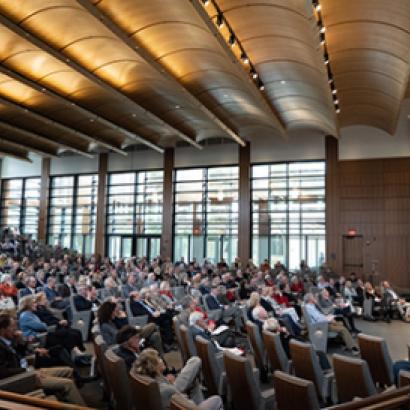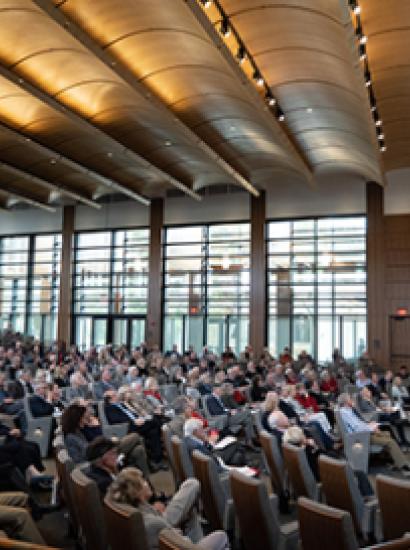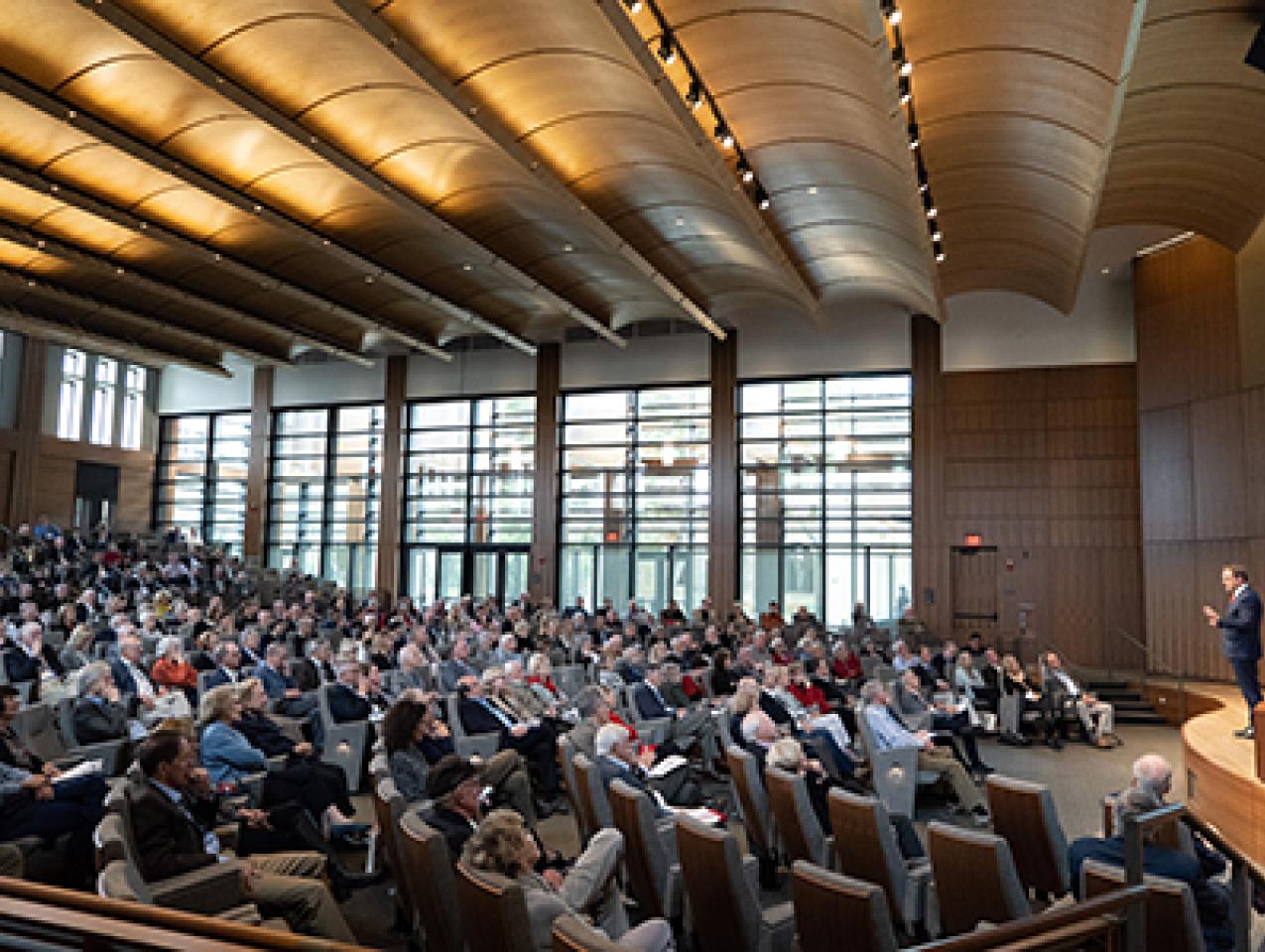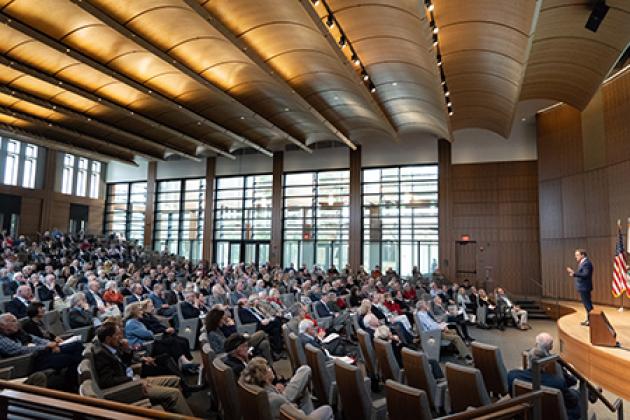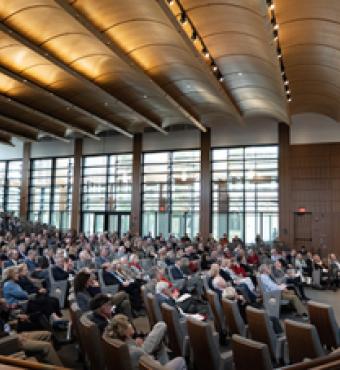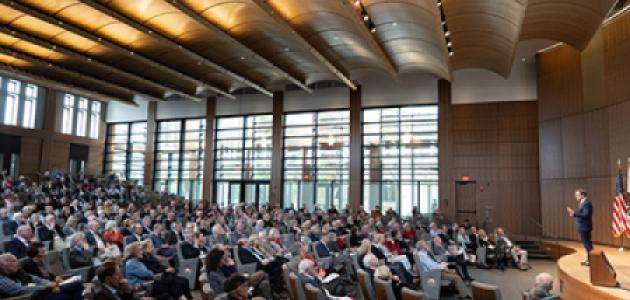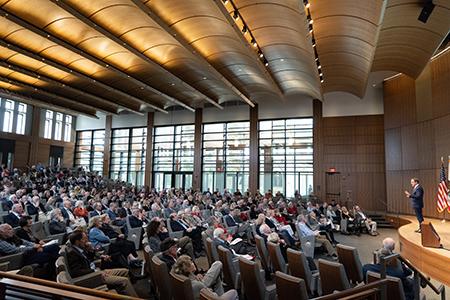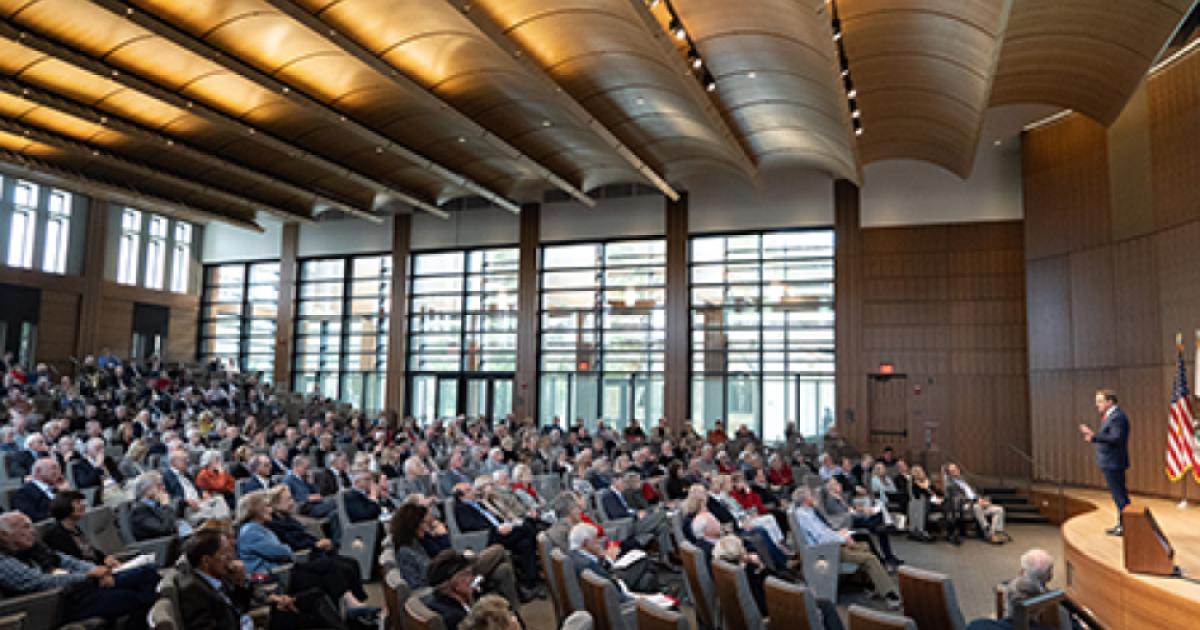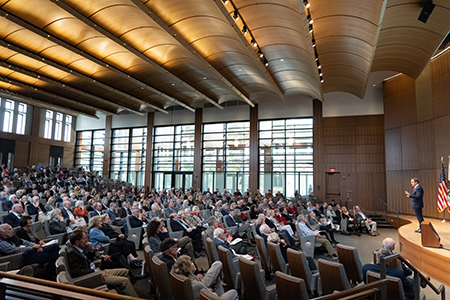
Can American freedom survive in today’s challenging world? That was a recurring question during two days of presentations at Hoover’s 2018 Fall Retreat, held from October 21–23 in Hoover’s David and Joan Traitel Building. In a comprehensive agenda of briefings developed exclusively for Hoover supporters, numerous fellows cheered America’s economic progress (helped by policies enacted under the advice of Hoover fellows) while also explaining daunting new challenges to America’s security.
Economic Optimism Begins With Realism . . . And Growth
The good economic news began with a talk by Leonard and Shirley Ely Senior Fellow John F. Cogan, one of the world’s foremost experts in entitlement spending and fiscal policy. Congress, Cogan explained, has no current realistic proposals to reign in entitlement spending—with the annual budget deficit already running more than $1 trillion. Yet he offered four reasons to remain hopeful:
1. Our country still possesses the sound economic fundamentals needed to overcome out-of-control entitlement spending and debt.
2. Congress has undertaken significant reforms before—effectively tackling entitlement spending even when the prospects were bleak.
3. The political environment can easily change to one more favorable to real entitlement and spending reform.
4. Growth is the single most important factor in escaping the looming debt crisis—and thanks to pro-growth policies now gaining momentum in the US economy, a more encouraging picture is already emerging.
Cogan also shared a concrete plan for solving the looming entitlement and debt crisis by regaining control of Social Security and Medicare—a plan that he believes can be implemented. He has already discussed reforms with government leaders and, with the policy stage set, the political will to enact such a plan may be on the way.
Senior Fellows Michael Boskin, John Taylor, and Edward Lazear followed Cogan with encouraging, yet cautious, talks that outlined economic challenges ahead while still pointing to a prosperous future—if policy makers take the right actions. As these policy discussions take shape, Hoover fellows will continue to guide White House and congressional leadership with expert research, analysis, and recommendations—as they did during the passage of corporate tax reform and countless other policy victories affecting our nation’s future.
International Threats: New, Old, and Combined
The hopeful discussions of economic progress contrasted the warnings of dark clouds on the horizon for America’s national security. They began with Visiting Fellow Alex Stamos, formerly the chief cybersecurity officer for Facebook, who explained how the euphoria surrounding the rise of the internet has collided with threats of cyberattacks by hostile nations. The United States—in both the private and government sectors—is struggling to patch its vulnerabilities against the potentially devastating effects of such attacks, which can range from disrupting elections to damaging the power grid.
Stamos was followed the next day with warnings of cyber and military threats outlined in riveting, if concerning, presentations by Hoover fellows Victor Davis Hanson, Michael Auslin, Niall Ferguson, and Larry Diamond. Hanson described the decline of the post-WWII and post-Cold War international orders and how the strains caused by those declines—unnoticed by political elites but felt viscerally in middle America—ultimately led to the political rise of President Trump.
Williams-Griffis Fellow in Contemporary Asia Michael Auslin then discussed “the good, the bad, and the ugly” of US policy in Asia:
- The Good: The Trump Administration’s “new China realism” policy framework (reinforced with guidance from Hoover) is checking China’s aggression.
- The Bad: Our alliance with South Korea is tottering due to a left-leaning South Korean administration that threatens to undercut our nuclear negotiations with North Korea.
- The Ugly: There is an emerging question about whether the United States and China are on a collision course for a war that could, at a minimum, involve large-scale cyber hacking. What’s more, Auslin explained, the United States is dealing with North Korea, led by a dictator; China, led by a communist regime; and South Korea, led by a left-leaning president. It is a dangerous situation.
The next day, Milbank Family Senior Fellow Niall Ferguson added a historian’s take on the prospects for “war” with China across several non-kinetic fronts: currency, trade, information, and cyberspace. The outlook for our country, he explained, is uncertain as things now stand.
Senior Fellow Larry Diamond summarized the dangers well. “We live in a fluid time where we might have to confront China and/or Russia in a military context without the confidence that we could prevail,” he warned. “It’s a bad place to be, and we need to catch up.” He said the Trump administration is making progress, but every sphere of the public and private sector needs to adopt a sense of urgency about these international tensions.
Players in a Historic Drama
The constant refrain in each of the retreat’s presentations was the crucial role of Hoover—and the supporters who make all of its work possible. Fouad and Michelle Ajami Senior Fellow H. R. McMaster—who served as both a lieutenant general in the US Army and as national security adviser in the Trump Administration—offered a detailed analysis of the perils America faces in the world today. McMaster emphasized the important role of Hoover in providing principled and rigorous research, analysis, and guidance to the American public and all the way up to our nation’s top leadership in government.
McMaster also reminded the audience of the Hoover Institution’s mission to “constantly and dynamically point the road to peace, to personal freedom, and to the safeguards of the American system.” He went on:
“Today, a new debate is taking place about the American role in the world order. I believe the Hoover Institution must be in the middle of this debate due to the interdisciplinary insights of its scholars.”
By the end of the retreat, the overarching message was clear: America is at a turning point for ideas defining a free society. Every Hoover supporter is playing a vital role in this historic moment, standing with our nation’s leading scholars to maintain our country’s freedom, prosperity, and security in the face of many serious challenges within our borders and around the world.







